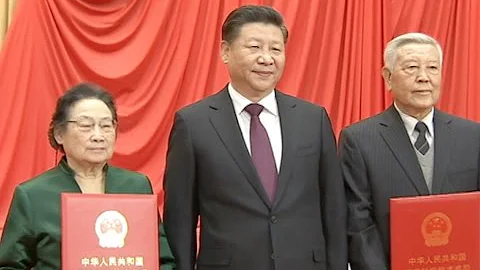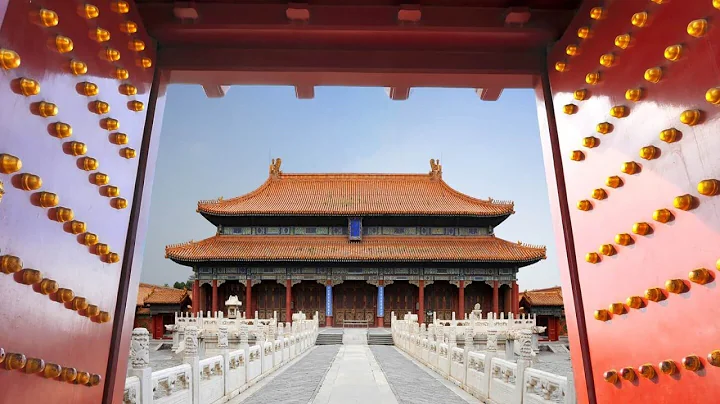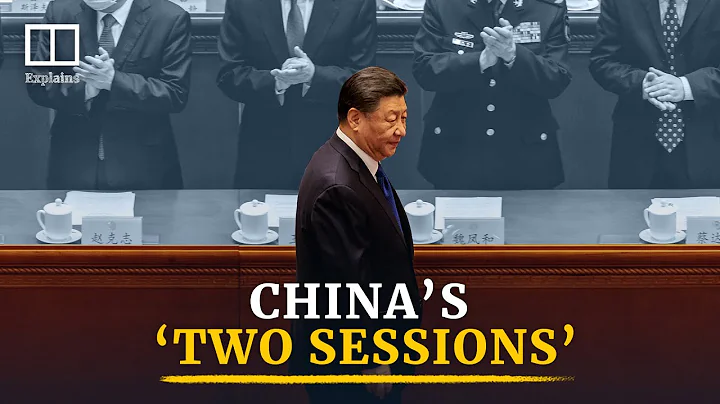7 top scientists won the 2018 Future Science Award A professor from Sichuan University was selected
reporter Yang Shisheng reported in Beijing
html On September 8, the third Future Science Award ceremony was held in Beijing, and a total of 7 top scientists won the award. Among them, Feng Xiaoming, who graduated from Lanzhou University, won the "2018 Material Science Award" and is now the deputy dean of the Graduate School of Sichuan University, a professor of the School of Chemistry, and a doctoral supervisor.It is understood that in 2016, the Future Science Award was officially established, becoming the first civilian science award jointly initiated by scientists and entrepreneurs in mainland China. Once a year, the Future Science Award is awarded to scientists of any nationality, but they need to be scientists who have completed research in the Greater China region, and the research must have originality, long-term importance and huge international impact. Each award of the Future Science Award is worth US$1 million.
2018 Physical Science Award

Winners: Ma Dawei Zhou Qilin Feng Xiaoming
Reason for award: In recognition of their creative contributions in the invention of new catalysts and new reactions, which provide new ways to synthesize organic molecules, especially drug molecules. .
Alumni of the Department of Chemistry of Lanzhou University - Zhou Qilin, born in February 1957 in Nanjing, Jiangsu Province, is a professor at the School of Chemistry at Nankai University, an academician of the Chinese Academy of Sciences, a distinguished professor of the Ministry of Education's first batch of Changjiang Scholars, and a doctoral supervisor.
Graduated from the Chemistry Department of Lanzhou University in 1982.
1982-1987 Studied at the Shanghai Institute of Organic Chemistry, Chinese Academy of Sciences, and received a doctorate in science.
1988-1996 He has worked at East China University of Science and Technology, the Max-Planck Institute in Germany, the University of Basel in Switzerland, and Trinity University in the United States. Postdoctoral Research
Since 1996, he has been a professor and doctoral supervisor at the Institute of Fine Chemical Engineering, East China University of Science and Technology. In 1997, he received funding from the National Outstanding Youth Fund. In August 1999, he was appointed as a "Changjiang Scholar Distinguished Professor" of Organic Chemistry by the Ministry of Education, and transferred to Nankai University
2009 In November 2013, he was elected as an academician of the Chinese Academy of Sciences
In January 2013, he was elected as the dean of the School of Chemistry of Nankai University
In December 2009, he was elected as an academician of the Chinese Academy of Sciences. Dean of the School of Chemistry, Nankai University, Director of the Institute of Elemental Organic Chemistry, and Director of the State Key Laboratory of Elemental Organic Chemistry of Nankai University. The main research direction of
is asymmetric catalysis, including the design and synthesis of new chiral ligands and chiral catalysts, the development of new asymmetric catalytic reactions; the synthesis of biologically active chiral natural and non-natural compounds; the synthesis of chiral drugs, etc.
Professor Zhou Qilin's main research fields are the application of metal-organic compounds in organic synthesis , asymmetric synthesis, synthesis of biologically active natural and non-natural compounds and research on organic synthesis methodology. Undertaken and completed a number of scientific research projects such as the National Natural Science Foundation, the National Natural Science Key Fund, the National Outstanding Youth Fund, and the National Major Basic Research Program (973) sub-project. To date, he has published more than 120 research papers and co-edited 3 books. The paper has been cited by others more than 2,300 times. In addition, we have applied for 4 Chinese invention patents.
On August 31, 2018, the Ministry of Education announced the list of national teaching and educating models in 2018, and Zhou Qilin was among them.


Feng Xiaoming, a class 1981 alumnus of the Chemistry Department of Lanzhou University

Vice dean of the Graduate School of Sichuan University, professor of the School of Chemistry, and doctoral supervisor. From 1981 to 1988, he studied organic chemistry in the Department of Chemistry of Lanzhou University and obtained a bachelor's degree in science and a master's degree in science. Obtained a Doctorate of Science from the Chinese Academy of Sciences in 1996. In December 2013, he was elected as an academician of the Chinese Academy of Sciences.
is engaged in research on asymmetric synthesis methodology and the synthesis of chiral medicines, pesticides and physiologically active compounds. Systematic and in-depth research has been carried out on core and challenging issues such as the development of new superior chiral catalysts, new reactions and new strategies in asymmetric synthesis.
This Future Science Award is divided into "Life Science Award", "Material Science Award", and "Mathematics and Computer Science Award". The other winners are: Ma Dawei, Li Jiayang, Yuan Longping, Zhang Qifa, Lin Benjian .
Ma Dawei

Ma Dawei is a researcher and deputy director of the Shanghai Institute of Organic Chemistry, Chinese Academy of Sciences, a postdoctoral fellow at the University of Pittsburgh and Mayo Clinic, a Doctor of Science at the Shanghai Institute of Organic Chemistry, Chinese Academy of Sciences, and a Bachelor of Science in the Department of Chemistry, Shandong University. The main research directions of
are total synthesis of complex natural products with important physiological activities, organic synthesis methodology, chemical biology , etc. For chemical biology oriented organic synthesis and medicinal chemistry. He has published more than 100 papers in important international magazines. His published papers have been cited more than 800 times by others. As the responsible author, he has published more than 70 papers, which have been cited by others more than 400 times, including hundreds of citations each year in 2002 and 2003. Two recent works were reviewed by Chemical Engineering News and Chemtracts respectively.
List of 2018 Life Science Award
winners: Li Jiayang, Yuan Longping, Zhang Qifa
Reason for award: To reward their pioneering contributions in systematically studying the specific molecular mechanisms of rice and using new technologies to breed new high-yield and high-quality rice varieties.
Li Jiayang

Li Jiayang, born in July 1956 in Feixi, Anhui, is a plant molecular geneticist. In 1982, he graduated from Anhui Agricultural College (now Anhui Agricultural University) with a bachelor's degree. 1984, Master's degree from Institute of Genetics, Chinese Academy of Sciences. From 1985 to 1991, he received a doctorate from Brandeis University in the United States. He was elected as an academician of the Chinese Academy of Sciences, an academician of the Academy of Sciences of Developing Countries, an academician of the German Academy of Sciences, a foreign academician of the American Academy of Sciences, and a foreign member of the Royal Society of the United Kingdom.
Academician Li Jiayang has long been engaged in molecular network research on the regulation of growth, development and metabolic pathways of higher plants and rice variety design and breeding. He focuses on elucidating the molecular mechanism of plant type formation in higher plants and is committed to the molecular variety design of rice to cultivate high-yielding, high-quality, high-quality rice varieties. New varieties with high resistance and high efficiency have made pioneering contributions with significant international influence and have led the international scientific frontier in this field. After more than ten years of arduous research, the team led by Li Jiayang used molecular design breeding technology to accurately select high-yield and high-quality control genes and "assemble" them together, solving the problem of "high yield but not high quality, high quality but not high yield" in rice. The research result "Molecular mechanism and variety design of the formation of high-yielding and high-quality traits of rice" also won the first prize of the 2017 National Natural Science Award.
Yuan Longping

Yuan Longping, born in Beijing in September 1930, is a native of De'an County, Jiujiang City, Jiangxi Province. He is a Chinese hybrid rice breeding expert and a pioneer in the research and development of hybrid rice in China. He is known as the "Father of Hybrid Rice in the World".
graduated from Southwest Agricultural College (now Southwest University) in 1953 and was elected as an academician of the Chinese Academy of Engineering in 1995. In 1999, an asteroid discovered by the Schmidt CCD asteroid project team of the Beijing Observatory of the Chinese Academy of Sciences was named Yuan Longping Star. He won the country's highest science and technology award, was elected as a foreign academician of the National Academy of Sciences in April 2006, and received an honorary doctorate from Macau University of Science and Technology in 2010.
Yuan Longping is a pioneer and leader in the field of hybrid rice research. He is committed to the research of hybrid rice and has successfully developed "three-line method" hybrid rice, "two-line method" hybrid rice, and super hybrid rice Phase I and II. At the same time, Yuan Longping proposed and implemented the “three-yield and four-high-yield project”, using the technological achievements of super hybrid rice, and published 6 Chinese and English monographs and more than 60 papers. In July 2017, he was appointed as chief professor of Qingdao Marine Rice College. In September 2017, Yuan Longping announced a new result in eliminating the heavy metal cadmium in rice. On April 14, 2018, Yuan Longping expressed his views on transgenic in an interview with Phoenix Finance in Hainan. Regarding genetically modified soybeans, Yuan Longping pointed out that as long as they are genetically modified crops that pass safety testing, there will be no problems. Yuan Longping said that genetic modification is the future development direction of agriculture.
Zhang Qifai

Zhang Qifai, born in Hubei Public Security Bureau in December 1953, is a crop genetics and breeding and plant molecular biologist, academician of the Chinese Academy of Sciences, academician of the Third World Academy of Sciences , foreign academician of the National Academy of Sciences of the United States, and life science and technology of Huazhong Agricultural University. College professor and doctoral supervisor.
After graduating from Huazhong Agricultural University in 1976, Zhang Qifa stayed at the school to teach. After receiving a doctorate from the University of California, Davis, in 1985, he stayed at the school to engage in postdoctoral work. After returning to China in 1986, he worked in the Department of Agricultural Sciences of Huazhong Agricultural University. Served as a lecturer, associate professor, professor, and doctoral supervisor; in 1994, he served as the first dean of the School of Life Science and Technology of Huazhong Agricultural University; in 1999, he was elected as an academician of the Chinese Academy of Sciences; in the same year, he was appointed as the first batch of distinguished professors of the Yangtze River Scholars Award Program of the Ministry of Education; in 2000 He was elected as an academician of the Third World Academy of Sciences in 2001; in 2001, he served as the director of the National Crop Molecular Technology Breeding Center; in 2007, he was elected as a foreign academician of the National Academy of Sciences; in 2008, he won the Hubei Provincial Science and Technology Outstanding Contribution Award.
Zhang Qifa has been committed to rice genome research, and based on this, he has developed "green super rice" that is insect-resistant, drought-resistant, and less susceptible to disease. The "insect-resistant transgenic rice" he led the development is part of the research on green super rice.
Mathematics and Computer Science Award - Lin Benjian

Reason for award: Inventing and promoting immersion lithography technology, making it a world leader in the semiconductor field and changing the technology path of the global semiconductor industry.
Lin Benjian once worked at IBM's research center in the United States, leading the team to create many world-leading technologies, including 1.25 micron, 1 micron, 0.75 micron, 0.5 micron, and 0.35 micron lithography technologies. After working at IBM for 22 years, Lin Benjian chose to start his own business in the United States for nearly 10 years.
At the invitation of TSMC Power, Lin joined TSMC in 2000 and began to promote immersion lithography technology in 2002. This technology has made a great contribution to the global semiconductor industry and TSMC's advanced manufacturing processes. During his research and development at TSMC, he led the team from 130 nanometer to 90 nanometer, 65 nanometer, 40 nanometer, 28 nanometer, 20 nanometer, and 16 nanometer, and began to develop 10 nanometer, 7 nanometer, and 5 nanometer.
Lin Benjian has won numerous awards. He has won the IBM Outstanding Invention Award and the IBM Outstanding Contribution Award 10 times. In 2008, he was elected as an academician of the National Academy of Engineering. In 2013, he was awarded the 2013 International Institute of Electrical and Electronics Engineers Western Award for his innovation in immersion lithography technology. Zernike First Prize, 2009 Cledo Brunetti Award, 2013 Industrial Research Institute Fellow, 2008 Ohio State University Distinguished Alumni, 2004 the first Frits Zernike Award of the International Society for Optics and Optoelectronics (SPIE), 2004 Pan Wenyuan Cultural and Educational Foundation Research Excellence Award, 2003 IEEE Fellow, 2003 SPIE Fellow; elected as an academician of Academia Sinica in 2014, he is the first academician from the business community in Taiwan’s highest academic hall.





















